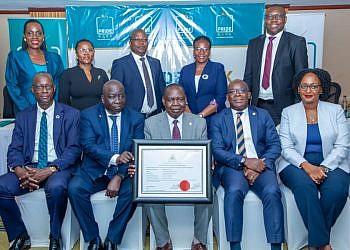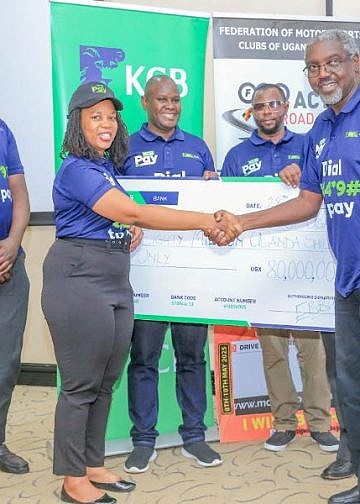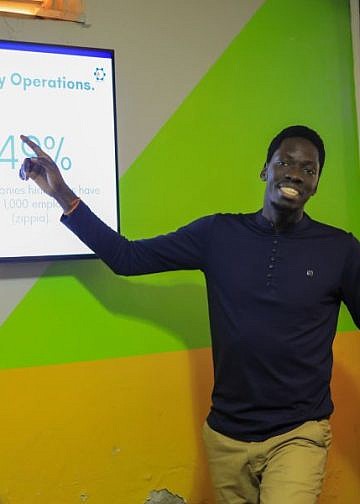With Uganda positioning itself as a continental leader in Business Process Outsourcing (BPO), local tech entrepreneur and youth advocate Okello Robert Bob has unveiled an ambitious plan to create one million digital earning opportunities for African youth by 2030.
The initiative, spearheaded through his organization Maarifasasa, aims to equip young people with marketable digital skills and directly connect them to global income opportunities—particularly in remote work, freelancing, and BPO.
“We help young people secure paid opportunities, whether through freelance platforms, remote roles,
or digital entrepreneurship. Our model only works when the youth start earning,” he said.
The name Maarifasasa, which means “Knowledge Now” in Swahili, reflects the urgency of the mission.
Unlike many training-only platforms, Maarifasasa focuses heavily on post-training job placement, partnering with global companies, freelance portals, and small-to-medium enterprises (SMEs) across Africa to offer real employment pathways.
Okello says his passion for youth empowerment stems from personal experience.
Born in Barlwala, a small village in Lira District, his early life was marked by economic hardship.
He nearly dropped out of school after Primary Seven due to financial constraints but managed to excel in national exams, earning scholarships that took him from Uganda to Norway’s United World College and eventually the University of Oklahoma in the U.S., where he designed a degree in African Development
Engineering.
“That journey taught me that talent is everywhere, but opportunity is not,” he said. “I wanted to change that reality for others who come from where I come from.”
In 2016, while studying in Italy as part of a university exchange, Okello met African migrants stranded and struggling in Rome. That experience left a deep impression.
“It broke my heart. I imagined a different story, one where Africans didn’t have to flee to find dignity,” he said. “That’s when I decided to return home and start Maarifasasa.”
Okello’s initiative aligns with recent efforts by the Ministry of ICT and National Guidance, which launched a national BPO policy and strategy in February 2025, aiming to create thousands of new jobs and attract international outsourcing opportunities.
Permanent Secretary Dr. Aminah Zawedde recently noted that Uganda’s emerging BPO sector has the potential to generate over shs3 billion in revenue this year alone.
“Uganda has a golden opportunity to be Africa’s digital talent capital,” Okello said.
“We have the population, the language skills, and the adaptability. What we need is investment in infrastructure, skilling, and job pipelines.”
Maarifasasa’s programs cover skills such as virtual assistance, content moderation, customer support, digital marketing, and data entry—all areas in high demand for remote work and BPO services. However, the organization’s real differentiator is its revenue model: Maarifasasa only earns once its trainees start earning.
“Our success is tied to theirs. That’s Ubuntu in action,” said Okello.
The organization also supports youth in digital entrepreneurship, encouraging them to launch online businesses, become freelancers, or create culturally relevant content for local and global audiences.
Okello has also been vocal about the need to include more Ugandan and African content in global digital spaces. During a recent flight to Eswatini, he observed the near-total absence of Ugandan content in the in-flight entertainment system.
“We must be visible in global platforms—from Netflix to airline screens. Our music, film, and stories should be part of the digital narrative,” he said. “Local content isn’t just about heritage—it’s an economic opportunity.”
By the end of the decade, Okello envisions a Pan-African network of Digital Impact Hubs, with trained youth not only earning but leading in the digital economy.
“We want to build futures our youth don’t have to flee from,” he said. “That’s what success looks like.”
He called on African governments, investors, and tech stakeholders to act urgently.
“If I had two minutes with the continent’s digital policymakers, I’d say this: skills, jobs, infrastructure. Make those your top priorities. Africa’s future depends on it.”








































